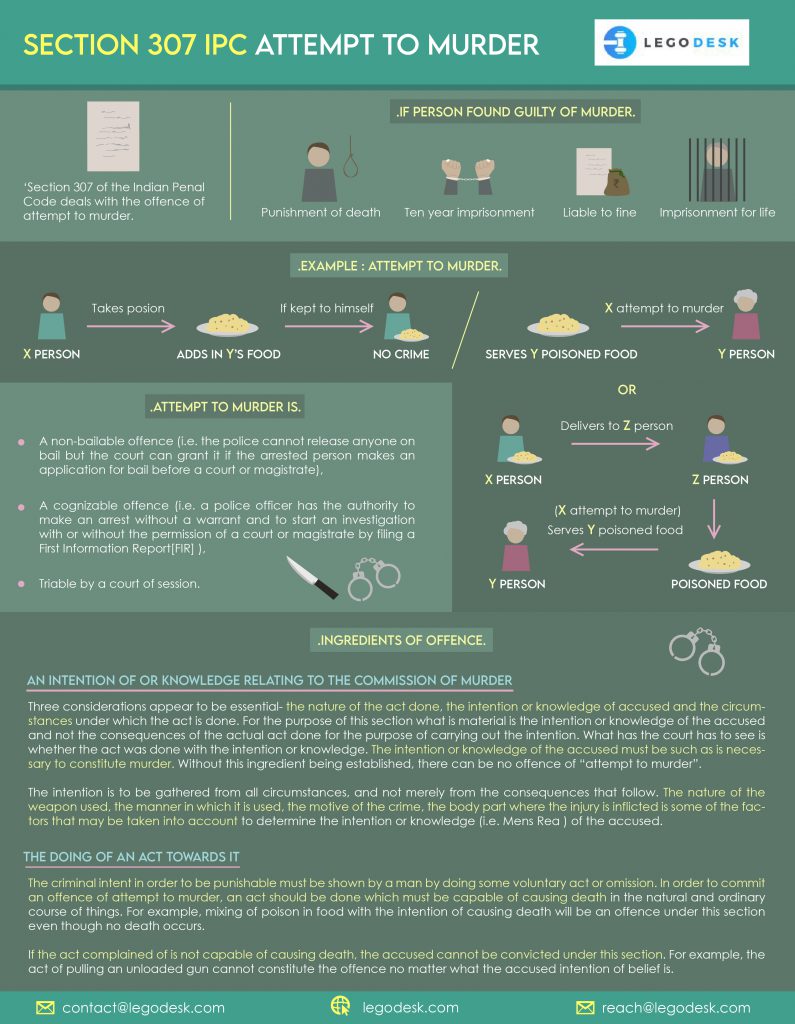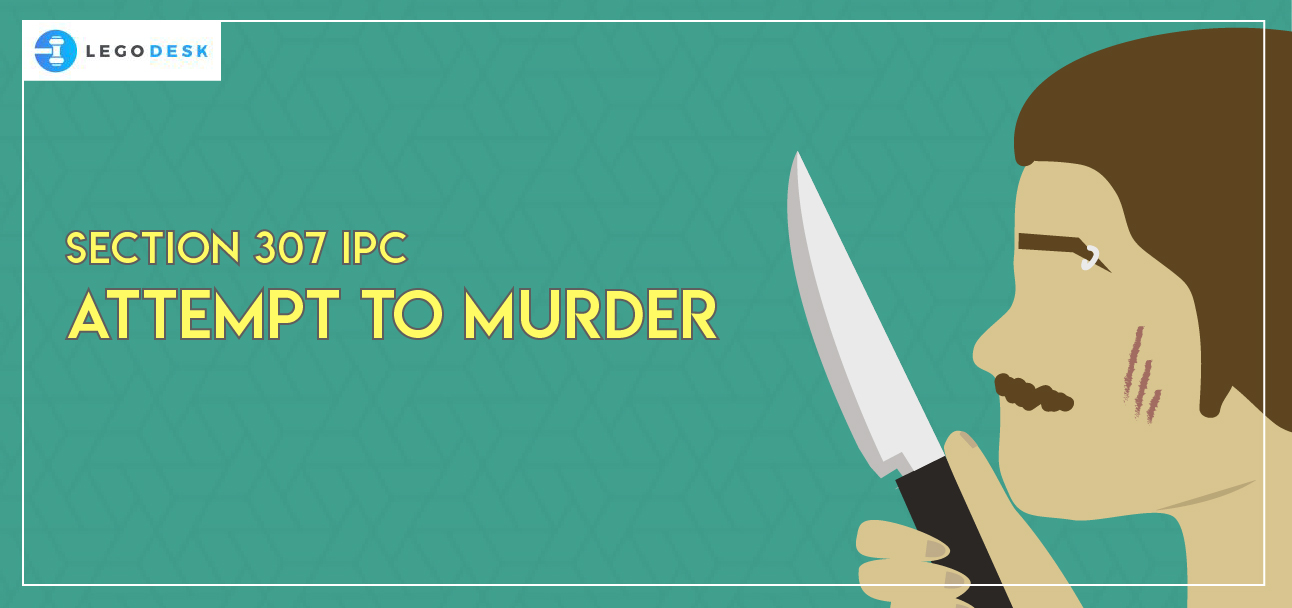
Section 307 of the Indian Penal Code deals with the offense of attempt to murder. Section 307 states that “Whoever does any act with such intention or knowledge, and under such circumstances that, if he by that act caused death, he would be guilty of murder, shall be punished with imprisonment of either description for a term which may extend to ten years, and shall also be liable to fine; and, if the hurt is caused to any person by such act, the offender shall be liable either to imprisonment for life or to such punishment as is hereinbefore mentioned.
When any person offending under this section is under sentence of imprisonment for life, he may, if the hurt is caused, be punished with death. ”

For example, X, intending to murder Y with poison, procures a white powder containing poison and secretly mixes the same with food that remains in X’s keeping. X has not yet committed the offense defined above. But if X places the same food on Y’s table or delivers it to Y’s servant to be placed on Y’s table, X has done an offense amounting to an attempt to murder.
Read Also – What is Section 308 under Indian Penal Code?
Attempt to murder is
- A non-bailable offence (i.e. the police cannot release anyone on bail but the court can grant it if the arrested person makes an application for bail before a court or magistrate),
- A cognizable offence (i.e. a police officer has the authority to make an arrest without a warrant and to start an investigation with or without the permission of a court or magistrate by filing a First Information Report[FIR] ), and
- Triable by a court of session.
Read Also – Best Example of Justice Delayed is Justice Denied
INGREDIENTS OF OFFENCE
To constitute an offence under IPC section 307, two ingredients must be present:
(a) An intention of or knowledge relating to the commission of murder;
(b) The doing of an act towards it
(a) An intention of or knowledge relating to the commission of murder
To determine whether an act is done within the ambit of section 307, three considerations appear to be essential- the nature of the act done, the intention or knowledge of the accused, and the circumstances under which the act is done. For the purpose of this section what is material is the intention or knowledge of the accused and not the consequences of the actual actions done for the purpose of carrying out the intention. What has the court has to see is whether the act was done with the intention or knowledge. The intention or knowledge of the accused must be such as is necessary to constitute murder. Without this ingredient being established, there can be no offense of “attempt to murder”.
Read Also – Culpable Homicide
The intention is to be gathered from all circumstances, and not merely from the consequences that follow. The nature of the weapon used, the manner in which it is used, the motive of the crime, the body part where the injury is inflicted is some of the factors that may be taken into account to determine the intention or knowledge (i.e. Mens Rea ) of the accused.
(b) The doing of an act towards it
Just wrong and evil intent is not enough to constitute a crime for you cannot know the intentions of a man. The criminal intent in order to be punishable must be shown by a man by doing some voluntary act or omission. In order to commit an offence of attempt to murder, an act should be done which must be capable of causing death in the natural and ordinary course of things. For example, mixing of poison in food with the intention of causing death will be an offence under this section even though no death occurs.
If the act complained of is not capable of causing death, the accused cannot be convicted under this section. For example, the act of pulling an unloaded gun cannot constitute the offence no matter what the accused intention of belief is.
In Vasan Jadhav vs. State of Maharashtra (2004), the Supreme Court observed that to justify a conviction under section 307 it is not essential that bodily injury capable of causing death should have been inflicted. Although the nature of injury actually caused may often give considerable assistance in coming to a finding as to the intention of the accused, such intention may also be deducted from other circumstances, and may even in some cases, be ascertained without any reference at all to actual wounds. What the court has to see is whether the act, irrespective of its result, was done with the intention or knowledge under circumstances mentioned in the section. If the intention is to commit murder and in pursuance of that intention a person does an act towards its commission irrespective of the fact that the act is penultimate or not, the offence under section 307, IPC would be made out. An attempt in order to be criminal need not be the penultimate act. It is sufficient in law if there is present an intent coupled with some act in execution thereof.
Thus, Attempt to murder is an offence punishable under section 307 of the Indian Penal Code, 1980.


Satyam Sagar
March 18, 2020Nice information, Best website of information of law. Thanks